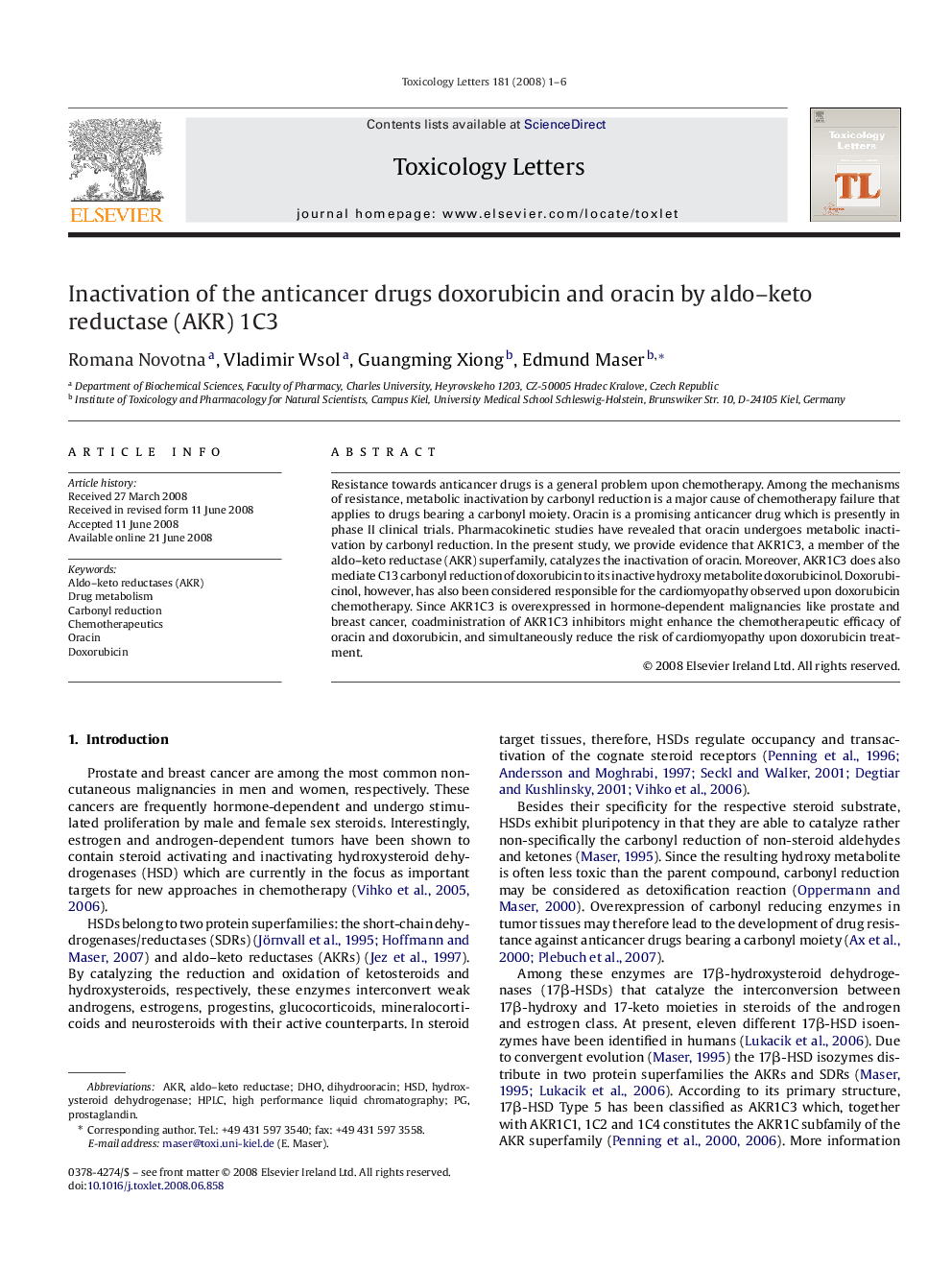| Article ID | Journal | Published Year | Pages | File Type |
|---|---|---|---|---|
| 2601433 | Toxicology Letters | 2008 | 6 Pages |
Resistance towards anticancer drugs is a general problem upon chemotherapy. Among the mechanisms of resistance, metabolic inactivation by carbonyl reduction is a major cause of chemotherapy failure that applies to drugs bearing a carbonyl moiety. Oracin is a promising anticancer drug which is presently in phase II clinical trials. Pharmacokinetic studies have revealed that oracin undergoes metabolic inactivation by carbonyl reduction. In the present study, we provide evidence that AKR1C3, a member of the aldo–keto reductase (AKR) superfamily, catalyzes the inactivation of oracin. Moreover, AKR1C3 does also mediate C13 carbonyl reduction of doxorubicin to its inactive hydroxy metabolite doxorubicinol. Doxorubicinol, however, has also been considered responsible for the cardiomyopathy observed upon doxorubicin chemotherapy. Since AKR1C3 is overexpressed in hormone-dependent malignancies like prostate and breast cancer, coadministration of AKR1C3 inhibitors might enhance the chemotherapeutic efficacy of oracin and doxorubicin, and simultaneously reduce the risk of cardiomyopathy upon doxorubicin treatment.
